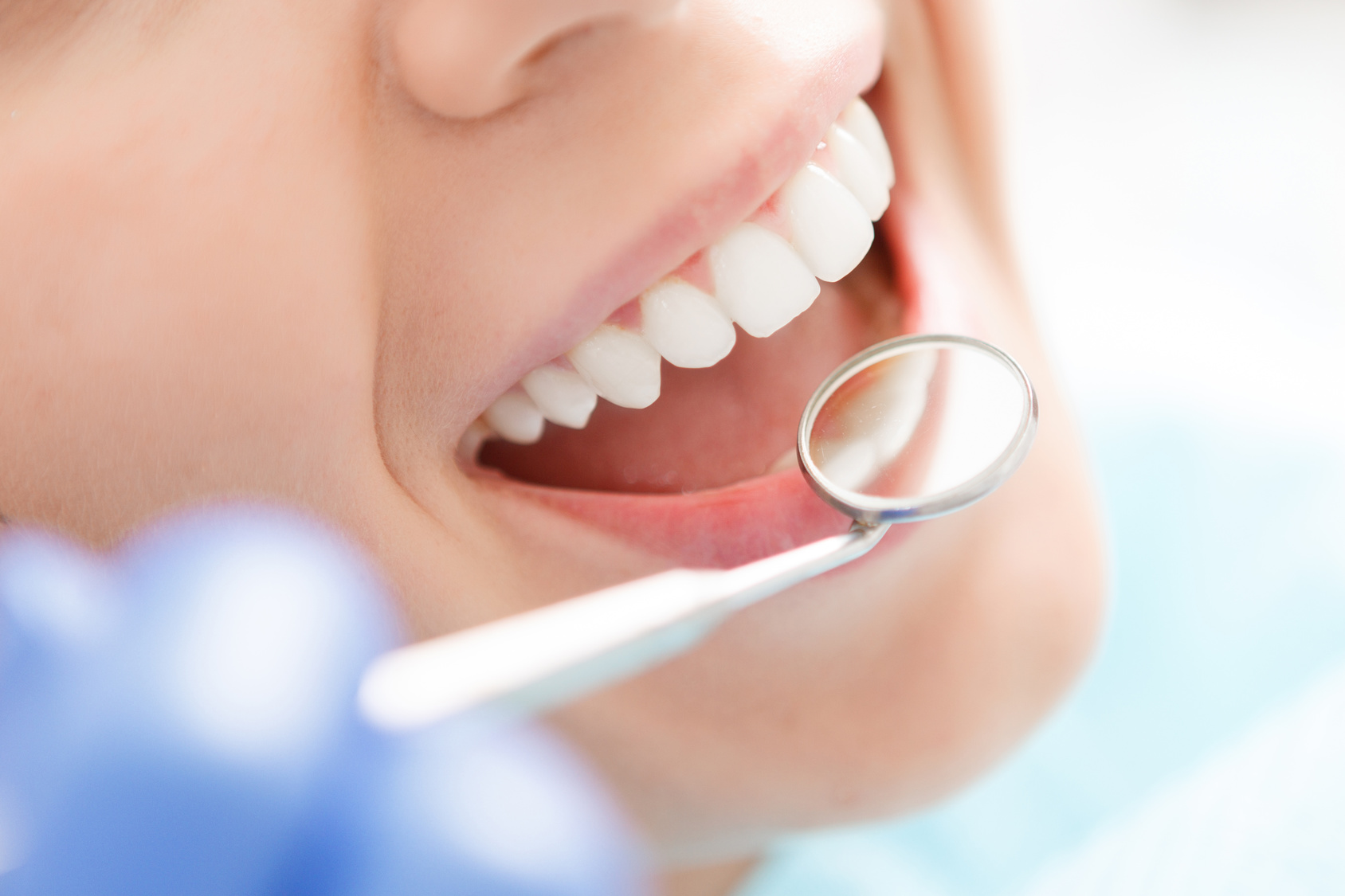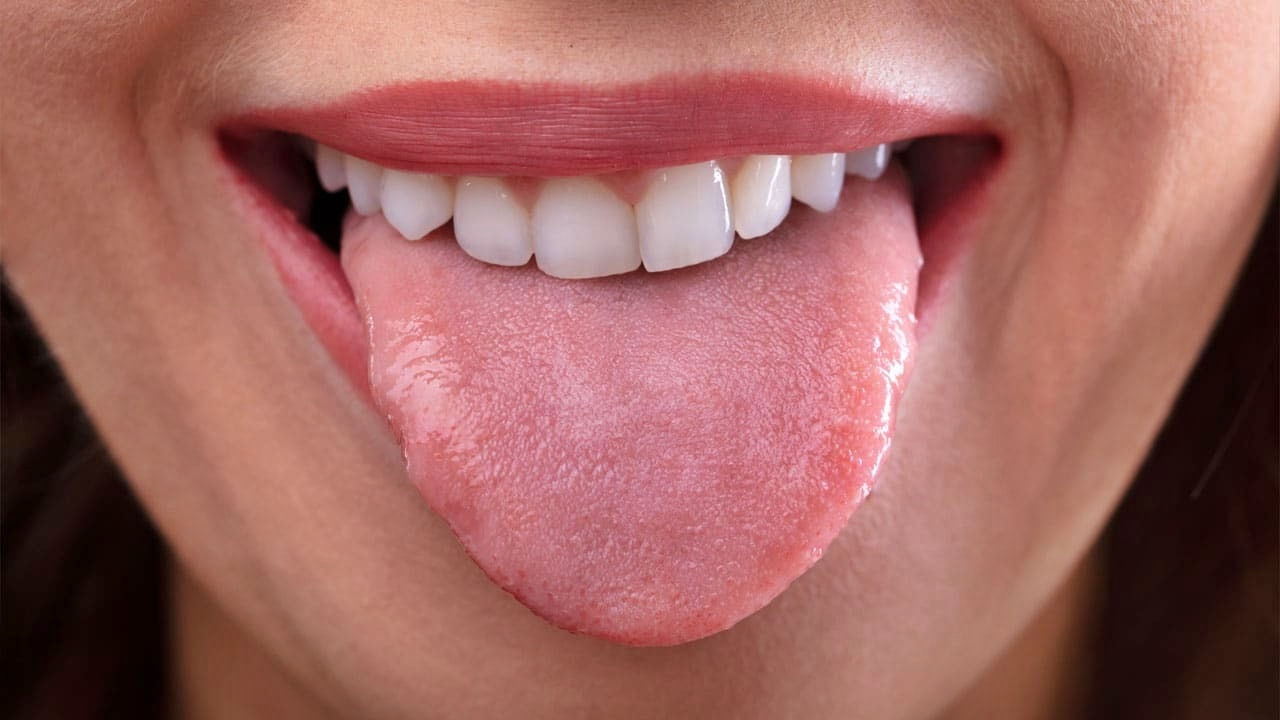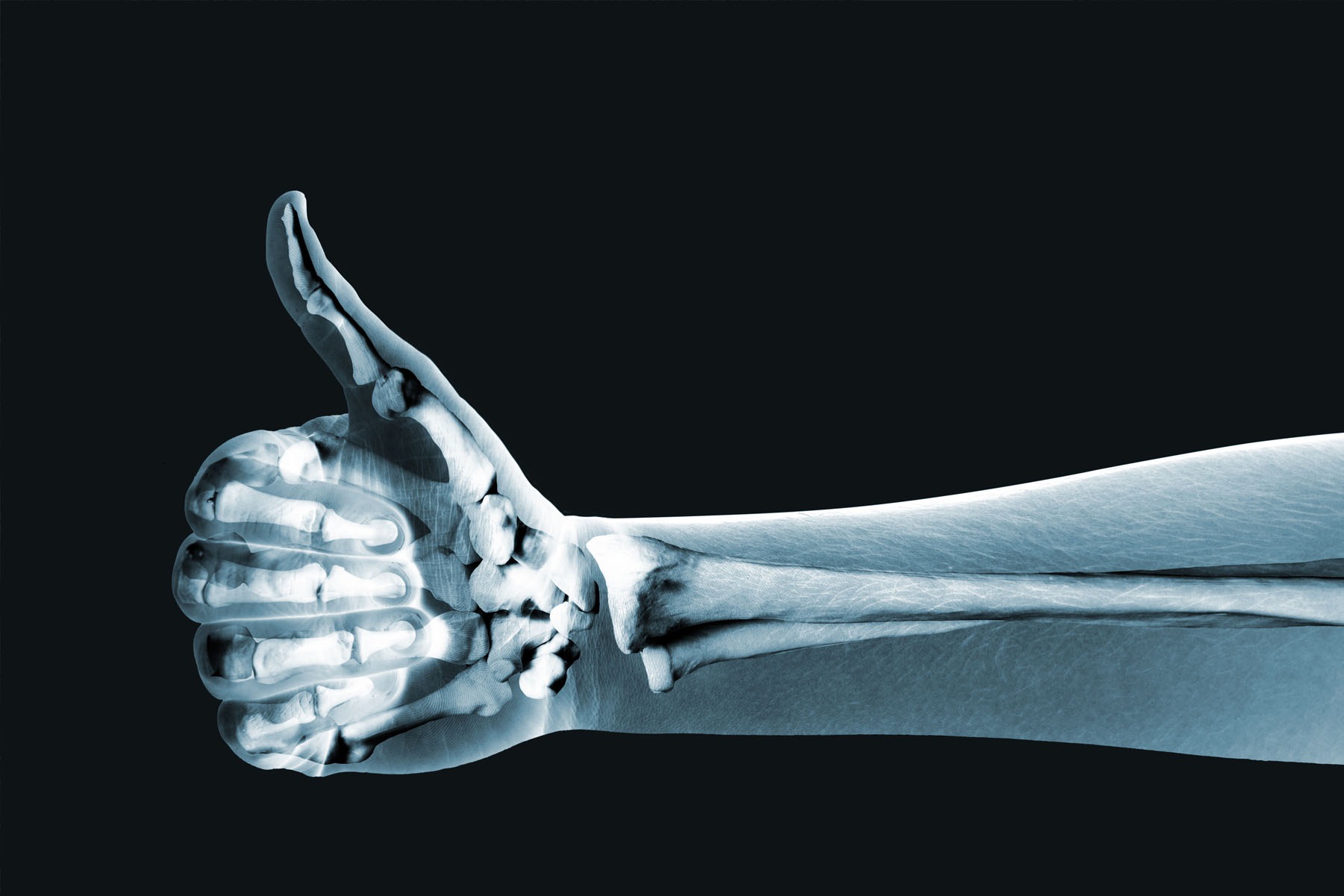

Featured
How To Improve Teeth Health
Published: September 15, 2023
Discover effective ways to improve teeth health and maintain a dazzling smile with our featured tips. Enhance your dental care routine and achieve optimal oral hygiene.
Introduction
The health of our teeth is often overlooked, but it plays a crucial role in our overall well-being. Not only do healthy teeth contribute to a bright and confident smile, but they also enable us to chew and digest food properly. Despite this, many people neglect their dental health, leading to a range of dental problems that can be painful, costly, and even impact our quality of life.
It is important to understand the significance of maintaining good dental health from an early age. By implementing certain habits and making informed choices, we can prevent common dental problems and improve the condition of our teeth. In this article, we will explore the importance of teeth health, common dental problems, and provide valuable tips to help you improve and maintain the health of your teeth.
By following these tips and integrating them into your daily routine, you can take control of your dental health and enjoy the benefits of a beautiful smile and strong teeth. So let’s dive in and discover how to enhance your teeth health!
Importance of Teeth Health
Having good dental health is essential for various reasons. Not only does it contribute to a beautiful smile, but it also has a significant impact on our overall well-being. Here are a few reasons why teeth health is of utmost importance:
- Digestion: Healthy teeth play a crucial role in the digestion process. Chewing food properly aids in breaking down the food into smaller particles, making it easier for the body to digest and absorb nutrients.
- Speech: Our teeth and oral structures are important for clear and proper speech. Properly aligned teeth and a healthy tongue enable us to articulate words accurately.
- Confidence and Self-esteem: Having a beautiful smile and healthy teeth can boost our confidence and self-esteem. It allows us to interact socially without feeling self-conscious or embarrassed about our dental appearance.
- Prevention of Dental Problems: Maintaining good dental health greatly reduces the risk of dental problems such as cavities, gum disease, and tooth loss. Preventive measures can save us from the pain, inconvenience, and expense associated with these issues.
- Overall Health: Research has shown a connection between oral health and overall health. Poor dental health has been linked to various systemic conditions like heart disease, diabetes, and respiratory infections. Taking care of our teeth can contribute to a healthier body.
Given the importance of teeth health, it is crucial to prioritize dental care and adopt habits that promote strong and healthy teeth. By doing so, we can enjoy the numerous benefits that good dental health brings to our lives.
Common Dental Problems
Despite our best efforts, dental problems can still arise. Understanding these common dental problems can help us identify and address them early on. Here are a few of the most common dental problems:
- Tooth Decay: Tooth decay, or cavities, is a prevalent dental problem caused by the buildup of plaque and bacteria on the teeth. If left untreated, it can lead to pain, infection, and even tooth loss.
- Gum Disease: Gum disease, also known as periodontal disease, is an infection of the gums and the tissues supporting the teeth. It can range from mild inflammation (gingivitis) to more severe forms that can result in tooth and bone loss.
- Tooth Sensitivity: Tooth sensitivity is characterized by discomfort or pain when consuming hot or cold food and drinks. It is often caused by exposed dentin due to receding gums or tooth enamel erosion.
- Tooth Erosion: Tooth erosion occurs when the enamel, the protective outer layer of the teeth, wears away due to acid attacks from acidic food and drinks, certain medications, or excessive brushing.
- Bad Breath: Bad breath, or halitosis, can be caused by poor oral hygiene, gum disease, certain foods, or underlying medical conditions. It can significantly impact our self-confidence and social interactions.
- Oral Cancer: Oral cancer is a serious condition that can affect the lips, tongue, cheeks, or throat. Early detection and treatment are crucial for improving the chances of successful treatment.
These dental problems can be prevented or minimized by adopting good oral hygiene practices and seeking regular dental care. However, if you experience any of these issues, it is important to consult with a dentist for proper diagnosis and treatment.
Tips for Improving Teeth Health
Improving teeth health is an ongoing process that requires consistent effort and the adoption of healthy habits. Here are some valuable tips to help you improve and maintain the health of your teeth:
- Eating a Balanced Diet: A balanced diet is not only beneficial for your overall health but also for your dental health. Limit sugary and acidic foods and beverages, as they can contribute to tooth decay and erosion. Instead, focus on consuming a variety of fruits, vegetables, lean proteins, and dairy products that provide essential nutrients for strong teeth.
- Proper Oral Hygiene Practices: Brush your teeth at least twice a day using a fluoride toothpaste and a soft-bristled toothbrush. Remember to brush all surfaces of your teeth and your tongue. Additionally, floss daily to remove plaque and food particles from between your teeth and along the gumline.
- Regular Dental Check-Ups: Schedule regular visits to your dentist for check-ups and professional cleanings. Regular dental exams allow for early detection and prevention of dental problems. Your dentist can also provide personalized advice and recommendations based on the condition of your teeth.
- Avoiding Harmful Habits: Certain habits can be detrimental to your dental health. Avoid smoking or using tobacco products, as they can stain your teeth, contribute to gum disease, and increase the risk of oral cancer. Limit or avoid drinking alcohol excessively, as it can also have negative effects on your oral health.
- Using Dental Products with Fluoride: Fluoride helps to strengthen tooth enamel and protect against tooth decay. Use a fluoride toothpaste and mouthwash as part of your daily oral hygiene routine.
- Protecting Your Teeth: If you participate in sports or other physical activities, it is important to wear a mouthguard to protect your teeth from injury. Similarly, if you grind your teeth at night, talk to your dentist about a custom-made mouthguard to prevent tooth damage.
By following these tips and integrating them into your daily routine, you can take control of your dental health and enjoy the benefits of a beautiful smile and strong teeth. Remember, consistency and diligence are key to maintaining optimal dental health.
Eating a Balanced Diet
Achieving and maintaining good dental health starts with what we put into our bodies. A balanced diet not only benefits our overall health but also plays a crucial role in promoting strong and healthy teeth. Here are some important tips for maintaining a balanced diet for optimal dental health:
Limit Sugary and Acidic Foods: Foods and beverages high in sugar and acidity contribute to tooth decay and erosion. Limit your consumption of sugary snacks, candies, sodas, and fruit juices. Opt for healthier alternatives like fresh fruits, vegetables, and unsweetened drinks.
Increase Calcium Intake: Calcium is essential for building strong teeth and bones. Ensure you include calcium-rich foods in your diet such as dairy products (milk, cheese, yogurt), leafy greens, and fortified plant-based milk alternatives.
Include Phosphorus-Rich Foods: Phosphorus works synergistically with calcium to support healthy teeth and bones. Include sources of phosphorus in your diet, such as lean meats, eggs, fish, nuts, and legumes.
Eat Fiber-Rich Foods: Foods high in fiber, such as fruits, vegetables, and whole grains, can help stimulate saliva production and promote oral health. Saliva helps neutralize acids in the mouth and washes away harmful bacteria.
Drink Plenty of Water: Water is essential for overall hydration and helps maintain a healthy saliva flow. Drinking water throughout the day can help rinse away food particles and reduce the risk of tooth decay.
Avoid Hard and Sticky Foods: Hard candies, ice cubes, and sticky foods like caramel or chewy candies can cause damage to teeth by either cracking them or sticking to the surface, creating an environment for bacteria to thrive.
Practice Moderation: While it’s important to eat a variety of foods for a balanced diet, it’s also crucial to practice moderation. Frequent snacking throughout the day exposes your teeth to a continuous acid attack. Instead, opt for regular, balanced meals and limit snacking between meals.
Remember, a balanced diet not only benefits your dental health but your overall well-being. By making conscious food choices and taking care of your teeth through proper nutrition, you can promote long-lasting oral health.
Proper Oral Hygiene Practices
Maintaining proper oral hygiene is essential for achieving and preserving optimal dental health. Implementing effective oral hygiene practices can help prevent dental problems and keep your teeth and gums healthy. Here are some important tips for maintaining proper oral hygiene:
Brushing: Brush your teeth at least twice a day, using a fluoride toothpaste and a soft-bristled toothbrush. Brush all surfaces of your teeth using gentle, circular motions. Be sure to brush the outer, inner, and chewing surfaces, as well as your tongue to remove bacteria and freshen your breath.
Flossing: Flossing complements brushing by removing plaque and food particles from between your teeth and along the gumline. Use a proper flossing technique, gently guiding the floss between each tooth and moving it in a C-shaped motion to clean the sides of the teeth. Make sure to floss at least once a day.
Maintaining Proper Technique: It’s important to use the correct technique while brushing and flossing to ensure effective cleaning without causing damage to your teeth and gums. Avoid brushing too forcefully, as it can lead to gum recession and enamel erosion. Use a gentle touch and take your time to thoroughly clean all areas of your mouth.
Choosing the Right Toothbrush and Toothpaste: Select a toothbrush with soft bristles that can effectively remove plaque without causing damage to the gums and enamel. Consider using a toothpaste with fluoride to help strengthen enamel and prevent tooth decay.
Using Mouthwash: Incorporating mouthwash into your oral hygiene routine can help kill bacteria, freshen your breath, and reach areas that brushing and flossing may have missed. Look for a mouthwash that is alcohol-free and has antibacterial properties.
Replacing Your Toothbrush Regularly: Over time, the bristles of your toothbrush wear out and become less effective at cleaning. Replace your toothbrush every three to four months or sooner if the bristles become frayed. This ensures that you are using an effective tool for maintaining proper oral hygiene.
Don’t Forget Your Tongue: Bacteria can also accumulate on your tongue, leading to bad breath and potential oral health issues. Gently brush your tongue or use a tongue scraper to remove bacteria and keep your breath fresh.
Schedule Regular Dental Check-Ups: In addition to maintaining a thorough oral hygiene routine at home, it’s crucial to visit your dentist regularly. Professional dental cleanings and check-ups can help identify and prevent dental problems, as well as provide specialized guidance on maintaining oral health.
By following these proper oral hygiene practices, you can significantly reduce the risk of dental issues and maintain a healthy smile for years to come.
Regular Dental Check-Ups
Regular dental check-ups are a crucial component of maintaining optimal dental health. While practicing good oral hygiene at home is essential, visiting your dentist regularly offers several benefits that are vital for your overall oral well-being. Here are some important reasons why regular dental check-ups are important:
Early Detection of Dental Issues: Regular dental check-ups allow your dentist to identify dental issues in their early stages. Early detection enables timely intervention and treatment, preventing the problem from worsening and potentially becoming more complex and costly to address.
Professional Teeth Cleaning: Alongside the examination, dental check-ups involve professional teeth cleaning. Even with diligent oral hygiene, there are areas that may be difficult to clean effectively at home. Professional cleaning helps remove plaque and tartar build-up, reducing the risk of cavities, gum disease, and bad breath.
Prevention of Gum Disease: Gum disease is a prevalent dental condition that can lead to serious oral health issues if left untreated. Regular dental check-ups allow your dentist to assess your gum health, identify early signs of gum disease, and recommend appropriate treatments or preventive measures.
X-rays and Diagnostic Tools: Dental check-ups often involve X-rays or other diagnostic tools that help your dentist detect issues that may not be visible during a physical examination. X-rays can reveal hidden cavities, impacted teeth, bone loss, and other underlying dental problems.
Oral Cancer Screening: Oral cancer can be a serious and life-threatening condition if not detected early. During your dental check-up, your dentist will perform an oral cancer screening, examining your mouth, tongue, gums, throat, and other oral tissues for any signs or abnormalities that may warrant further investigation.
Personalized Oral Health Advice: Your dentist can provide tailored advice and guidance based on the condition of your teeth and gums. They can offer recommendations on proper brushing and flossing techniques, the use of specialized oral care products, and any dietary changes or lifestyle modifications that can benefit your oral health.
Building a Relationship with Your Dentist: Regular dental check-ups foster a relationship of trust and open communication with your dentist. This allows you to feel more comfortable discussing any concerns or dental issues you may have, leading to better overall dental care and outcomes.
Remember, dental check-ups should be scheduled at least twice a year, unless your dentist recommends more frequent visits based on your specific dental needs. By prioritizing regular dental check-ups, you can maintain optimal oral health and address any potential dental problems early on, ensuring a healthy and confident smile for years to come.
Avoiding Harmful Habits
In addition to adopting good oral hygiene practices and seeking regular dental check-ups, it is important to be mindful of and avoid harmful habits that can have a negative impact on your dental health. By making conscious choices and steering clear of these habits, you can protect your teeth and maintain a healthy smile. Here are a few habits to avoid:
Smoking and Tobacco Use: Smoking and using tobacco products not only stain your teeth, but they also increase the risk of gum disease, tooth decay, and oral cancer. Quitting smoking or avoiding tobacco in any form is not only beneficial for your oral health but also for your overall well-being.
Excessive Alcohol Consumption: Consuming alcohol excessively can have adverse effects on your oral health. Alcohol can contribute to dry mouth, which reduces saliva flow and increases the risk of tooth decay and gum disease. It can also stain your teeth and cause bad breath. Limit your alcohol consumption to protect your dental health.
Biting Your Nails or Using Teeth as Tools: Using your teeth as tools or biting your nails can cause chips, cracks, or even fractures in your teeth. It can also strain your jaw and lead to temporomandibular joint (TMJ) disorders. Break these habits and use proper tools for tasks like opening packages or cutting objects.
Bruxism (Teeth Grinding): Grinding or clenching your teeth, known as bruxism, can wear down enamel, cause tooth sensitivity, and lead to jaw pain or headaches. If you suspect you have bruxism, consult your dentist about a custom-made mouthguard or other treatment options to protect your teeth.
Chewing on Ice or Hard Objects: Chewing on ice, hard candies, or using your teeth to open packaging can damage your teeth and increase the risk of cracks, chips, or fractures. Avoid these habits to protect your dental health and preserve the integrity of your teeth.
Excessive Intake of Sugary or Acidic Foods and Beverages: Consuming excessive amounts of sugary or acidic foods and beverages can contribute to tooth decay and erosion. Limit your intake of sugary snacks, sodas, energy drinks, and acidic foods like citrus fruits. Opt for healthier options and remember to rinse your mouth or brush your teeth afterwards.
Poor Oral Hygiene Practices: Neglecting proper oral hygiene practices, such as irregular brushing or skipping flossing, can have a negative impact on your dental health. Consistency is key when it comes to oral hygiene, so make sure to brush your teeth at least twice a day, floss daily, and use mouthwash as an additional step.
Ignoring Dental Pain or Delaying Treatment: Ignoring dental pain or delaying necessary dental treatment can allow dental problems to worsen. Address any toothaches, sensitivity, or other dental concerns promptly by consulting with your dentist. Early intervention can save you from further discomfort and more extensive treatment later on.
By avoiding these harmful habits and making conscious choices that promote good dental health, you can protect your teeth, maintain your oral well-being, and enjoy a beautiful, healthy smile for years to come.
Conclusion
Taking care of your teeth is essential for your overall well-being. By prioritizing good dental health practices, you can enjoy the benefits of a beautiful smile, strong teeth, and improved overall health. Whether it’s maintaining proper oral hygiene at home or seeking regular dental check-ups, every step you take towards improving your dental health is a step towards a brighter future.
By understanding the importance of teeth health, the common dental problems that can arise, and implementing the recommended tips, you can significantly reduce the risk of dental issues and maintain a healthy smile for years to come. Remember to eat a balanced diet, practice proper oral hygiene, and make regular visits to your dentist. Additionally, avoid harmful habits that can undermine your dental health.
Investing time and effort in caring for your teeth now can save you from potential pain, discomfort, and hefty expenses in the future. The power to achieve and maintain good dental health lies in your hands. So start today by implementing these tips and embracing a dental care routine that will benefit you for a lifetime.









